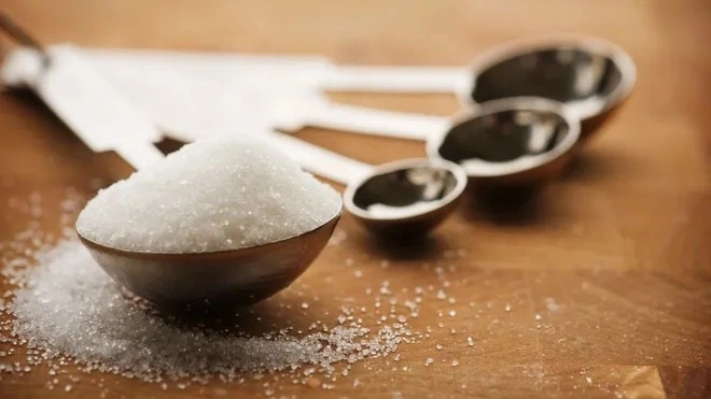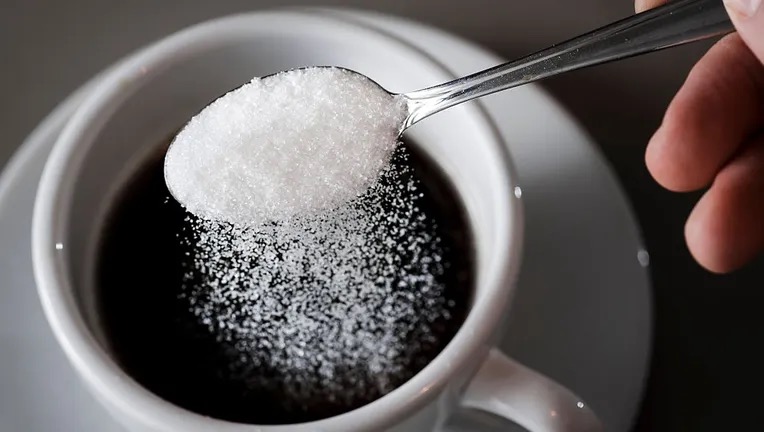Views: 222 Author: Sara Publish Time: 2025-08-19 Origin: Site








Content Menu
● Understanding Sucralose and Aspartame
● How Sucralose and Aspartame Affect Human Health
>> Impact on Blood Sugar and Insulin Response
>> Effects on Weight Management and Appetite
>> Influence on Gut Health and Microbiome
>> Safety Profile and Regulatory Approval
● Detailed Comparison of Sucralose and Aspartame
● Practical Considerations for Consumers and Manufacturers
● Frequently Asked Questions (FAQs)
>> 1. Is sucralose safe for people with diabetes?
>> 2. Can aspartame cause cancer?
>> 3. Which sweetener is better for weight loss?
>> 4. Do these sweeteners harm gut bacteria?
>> 5. Are sucralose and aspartame safe for children?
Artificial sweeteners have become increasingly popular as alternatives to sugar, especially for individuals seeking to reduce calorie intake, manage weight, or control blood sugar levels. Two of the most commonly used artificial sweeteners are sucralose and aspartame. This article explores whether sucralose is healthier than aspartame by examining their chemical properties, metabolism, health effects, and available scientific evidence.

Sucralose is a no-calorie artificial sweetener derived from sugar (sucrose) by substituting three hydrogen-oxygen groups with chlorine atoms. This modification makes it approximately 600 times sweeter than table sugar. Unlike sugar, sucralose passes through the body mostly undigested and is excreted unchanged. It is heat-stable, which means it retains its sweetness when used in cooking and baking. Sucralose's intense sweetness and versatility have made it a favorite in a wide range of food and beverage applications as well as in dietary supplements.
Aspartame is a low-calorie sweetener composed of two naturally occurring amino acids: phenylalanine and aspartic acid. It is about 200 times sweeter than sugar. After ingestion, aspartame is broken down in the digestive tract into its amino acid components and methanol, which are absorbed and metabolized by the body. Aspartame is not heat-stable, which limits its use in cooking to cold or low-heat foods like beverages and chewing gum.
Both sucralose and aspartame claim health benefits for those looking to reduce sugar consumption, yet their impacts on the body, metabolism, and overall health show notable differences and some controversies.
Sucralose was initially believed to have no effect on blood sugar or insulin levels. However, scientific results are mixed:
- Some studies show that sucralose does not raise blood glucose or insulin levels, even in people with type 2 diabetes, when consumed within the acceptable daily intake.
- Other research suggests that in people not accustomed to consuming sucralose, it may impair glucose metabolism and insulin sensitivity, potentially raising blood sugar after meals.
- There is ongoing research looking into how sucralose might affect the gut microbiome, which in turn could influence insulin regulation and overall metabolic health.
Aspartame also exhibits varied effects:
- Certain studies indicate it might contribute to glucose intolerance and insulin resistance, especially in obese individuals.
- Conversely, other trials found no significant impact of aspartame on blood glucose and insulin levels in healthy or diabetic populations.
- Some research points to possible increases in cortisol (a stress hormone), which can negatively affect glucose metabolism.
Despite these conflicting outcomes, regulatory bodies have set safe consumption limits that consider these metabolic effects.
Both sweeteners are widely used in weight management programs because they provide sweetness without calories. Yet, their influence on weight and appetite remains unclear:
- Clinical reviews suggest that replacing table sugar with artificial sweeteners like sucralose or aspartame can modestly reduce calorie intake and promote slight weight loss.
- However, artificial sweeteners may trigger increased appetite or cravings for sweet and high-calorie foods, potentially offsetting their benefits.
- Animal studies show mixed results: sucralose may alter fat metabolism and increase fat storage in some cases, while aspartame has been linked to increased fat mass and changes in energy balance.
- Human long-term studies on the effects of these sweeteners on body weight are sparse, and individual responses vary widely.
The gut microbiome plays an essential role in overall health, influencing digestion, immunity, and metabolism. Effects of artificial sweeteners on gut bacteria are gaining attention:
- Sucralose has been shown in animal and in vitro studies to reduce populations of beneficial gut bacteria and increase expression of inflammatory markers. This disruption could contribute to metabolic issues or immune responses.
- Aspartame is absorbed in the small intestine and less likely to reach the colon microbiota. However, some animal studies report gut microbiome alterations, though these findings are less consistent than for sucralose.
- More human clinical studies are needed to clarify the relevance of these findings for everyday consumption.
Both sucralose and aspartame have undergone extensive safety assessments by international health authorities:
- The U.S. Food and Drug Administration (FDA), European Food Safety Authority (EFSA), and other organizations consider both sweeteners safe when consumed within recommended guidelines.
- Concerns regarding aspartame's potential link to cancer, particularly brain tumors, have been thoroughly investigated and not substantiated at acceptable intake levels.
- Sucralose's long-term safety has also been well established, although some emerging studies warrant further evaluation of its metabolic and gut microbiome effects.

| Feature | Sucralose | Aspartame |
|---|---|---|
| Sweetness Level | About 600 times sweeter than sugar | About 200 times sweeter than sugar |
| Caloric Content | Zero calories | Low calories |
| Metabolism | Passes through unchanged, not metabolized | Broken down into amino acids and methanol |
| Heat Stability | Heat-stable, suitable for cooking and baking | Heat-sensitive, not suitable for high heat |
| Blood Sugar Impact | Mixed evidence; may impair insulin sensitivity | Mixed evidence; potential glucose intolerance |
| Weight Management | May modestly reduce calories but may increase appetite | Similar effects; possibly increases fat mass |
| Gut Microbiome Effects | May reduce beneficial bacteria and increase inflammation markers | Sparse evidence; some microbiome changes in animals |
| Regulatory Approval | Approved and regarded as safe | Approved and regarded as safe |
| Special Considerations | Safe for phenylketonuria (PKU) patients | Not for PKU patients due to phenylalanine content |
For food, beverage, and health product manufacturers considering OEM/ODM services involving these sweeteners, understanding the differences is critical to product formulation:
- Use Case: Sucralose's heat stability allows its inclusion in baked goods and products subjected to heat processing. Aspartame's sensitivity limits its use to products served cold or with minimal heat.
- Labeling & Market Demand: Products marketed towards diabetic or weight-conscious consumers may highlight their use of low-calorie sweeteners like sucralose or aspartame as a health benefit.
- Consumer Awareness: Offering transparent information on sweeteners helps build trust, especially as consumers become more knowledgeable about artificial ingredients.
- Innovations: Combining sweeteners with fiber or functional polyols, or blending sweeteners, can optimize sweetness profiles while improving health benefits and reducing potential side effects.
Both sucralose and aspartame provide effective sweetening with minimal or zero calories, supporting efforts to reduce sugar intake. While generally recognized as safe by health authorities, these sweeteners have nuanced effects on metabolism, insulin sensitivity, gut health, and weight management.
Sucralose's non-metabolized nature and heat stability make it a flexible choice, but emerging research suggests it might impact insulin response and gut bacteria negatively in certain individuals. Aspartame offers a natural amino acid base but requires caution for people with phenylketonuria and may influence glucose metabolism in some groups.
Ultimately, neither sweetener is unequivocally healthier than the other; individual health status, consumption patterns, and product application matter significantly. Moderation, ongoing research, and personalized dietary guidance remain key in choosing the right sweetener.

Sucralose is generally considered safe for diabetics and does not significantly raise blood sugar in most cases. However, some studies suggest it might affect insulin sensitivity, so individuals should monitor their responses and consult healthcare providers.
Extensive research has found no conclusive evidence that aspartame causes cancer when consumed within regulated safety limits.
Both can aid in reducing calorie intake when replacing sugar, but they may increase appetite in some people. Weight loss depends on overall diet and lifestyle.
Sucralose may alter beneficial gut bacteria and promote inflammation in some studies, while aspartame's effects are less pronounced and require more research for definitive conclusions.
Both are approved for use in children's food products within safe intake limits, though consumption should be moderate and monitored.
[1] https://www.nutrisense.io/blog/sucralose-aspartame
[2] https://pdf.dfcfw.com/pdf/h2_an202107091502722181_1.pdf
[3] https://www.healthline.com/nutrition/sucralose-vs-aspartame
[4] http://money.finance.sina.com.cn/corp/view/vCB_AllBulletinDetail.php?stockid=301206&id=7370608
[5] https://pmc.ncbi.nlm.nih.gov/articles/PMC9301525/
[6] https://www.foodtalks.cn/news/43250
[7] https://www.verywellhealth.com/sucralose-vs-aspartame-7551717
[8] https://www.nestle.com.cn/sites/g/files/pydnoa496/files/csv/documents/2014/nestle-csv-report-chinese-version(2013).pdf
[9] https://www.mayoclinic.org/healthy-lifestyle/nutrition-and-healthy-eating/in-depth/artificial-sweeteners/art-20046936
[10] https://www1.hkexnews.hk/listedco/listconews/sehk/2025/0530/2025053000074_c.pdf
